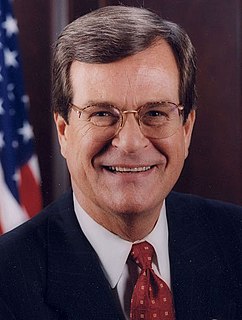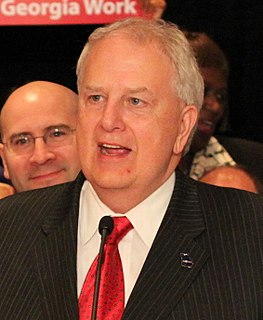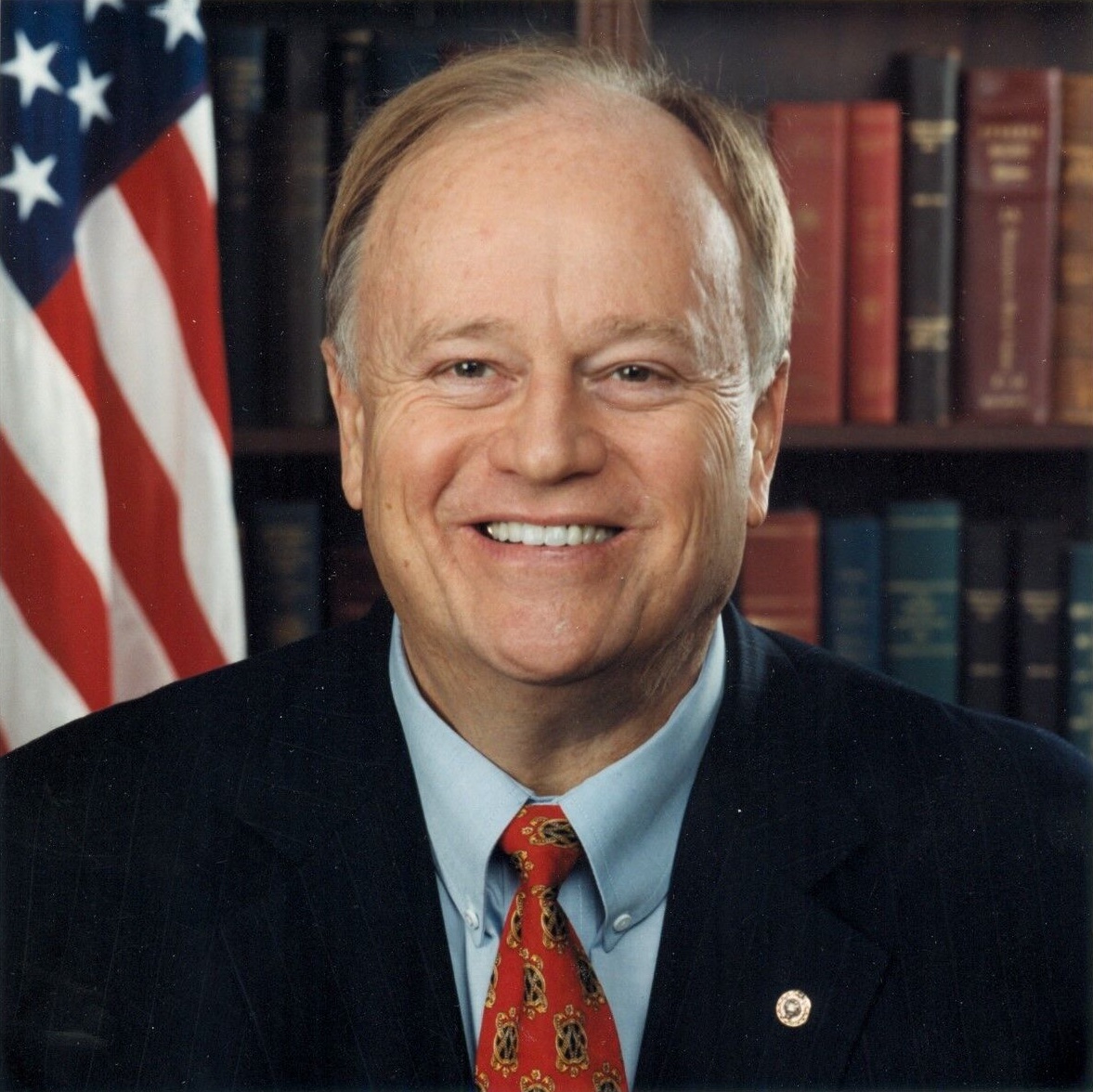| |||||||||||||||||
| |||||||||||||||||
| |||||||||||||||||
Election results by county Miller: Millner | |||||||||||||||||
| |||||||||||||||||
| Elections in Georgia | ||||||||||
|---|---|---|---|---|---|---|---|---|---|---|
 | ||||||||||
| ||||||||||
The 1994 Georgia gubernatorial election occurred on November 8, 1994, to elect the next Governor of Georgia from 1995 to 1999. Incumbent Democratic Governor Zell Miller, first elected in 1990, ran for a second term. In his party's primary, Miller received three challengers, but easily prevailed with just over 70% of the vote. The contest for the Republican nomination, however, was a competitive race. As no candidate received a majority of the vote, John Knox and Guy Millner advanced to a run-off election. Millner was victorious and received the Republican nomination after garnering 59.41% of the vote.

The Democratic Party is one of the two major contemporary political parties in the United States, along with the Republican Party. Tracing its heritage back to Thomas Jefferson and James Madison's Democratic-Republican Party, the modern-day Democratic Party was founded around 1828 by supporters of Andrew Jackson, making it the world's oldest active political party.

Zell Bryan Miller was an American author and politician from the U.S. state of Georgia. A Democrat, Miller served as lieutenant governor from 1975 to 1991, 79th Governor of Georgia from 1991 to 1999, and as U.S. Senator from 2000 to 2005.
Contents
- Background
- Democratic primary
- Campaign
- Candidates
- Results
- Republican primary
- Campaign 2
- Candidates 2
- Results 2
- Polling
- General election
- Results 3
- References
- External links
The general election was a competitive race between Zell Miller and Guy Millner. Issues such as welfare reform, education, and the removal of the Confederate battle flag from Georgia's state flag dominated the election. On election day, Miller defeated Millner 51.05%-48.95% in the second-closest gubernatorial election in Georgian history – behind only the 1966 election – since Reconstruction due to the strong Republican wave of 1994. Although the state was becoming increasingly more Republican, Democrats would retain the Governor's mansion until 2003.
Welfare reforms are changes in the operation of a given welfare system, with the goals of reducing the number of individuals dependent on government assistance, keeping the welfare systems affordable, and assisting recipients become self-sufficient. Classical liberals, libertarians, and conservatives generally argue that welfare and other tax-funded services reduce incentives to work, exacerbate the free-rider problem, and intensify poverty. Socialists, on the other hand, generally criticize welfare reform because it usually minimizes the public safety net, and strengthens the capitalist economic system. Welfare reform is constantly debated because of the varying opinions on the government's determined balance of providing guaranteed welfare benefits, and promoting self-sufficiency.

The current flag of the state of Georgia was adopted on May 8, 2003. The flag bears three stripes consisting of red-white-red, and a blue canton containing a ring of 13 white stars encompassing the state's coat of arms in gold. In the coat of arms, the arch symbolizes the state's constitution and the pillars represent the three branches of government: legislative, executive, and judicial. The words of the state motto, "Wisdom, Justice, and Moderation", are wrapped around the pillars, guarded by a male figure dressed in colonial attire dating back to the time of the American Revolutionary War. Within the arms, a sword is drawn to represent the defense of the state's constitution. An additional motto, In God We Trust, is positioned underneath these elements acting as the state's "foundation". The ring of stars that encompass the state's coat of arms symbolize Georgia's status as one of the original Thirteen Colonies. The design principle is based on the first national flag of the Confederacy, which was nicknamed the "Stars and Bars".





















